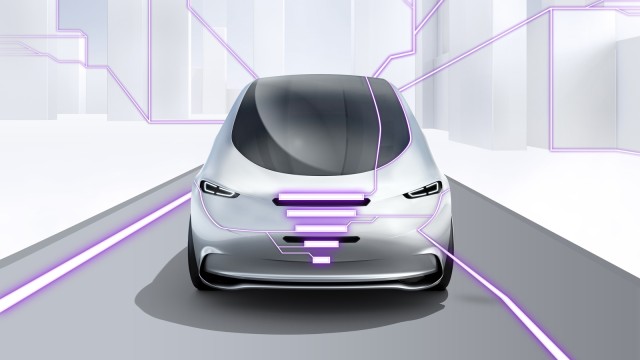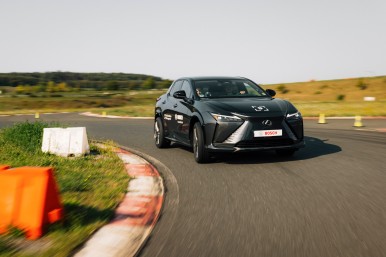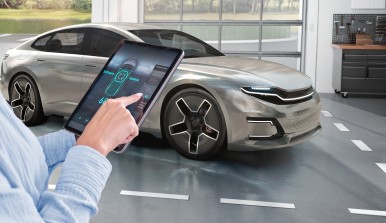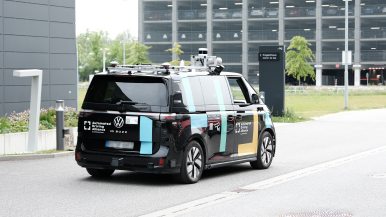Düsseldorf and Stuttgart, Germany – A milestone on the path to fully connected roads: on the A9 freeway near Allershausen, Germany, Bosch, Vodafone, and Huawei are field-testing the new LTE-V2X technology. The new mobile communication technology enables the direct, instantaneous exchange of information between vehicles. Connected cars can directly transmit information about such things as speed, position, and lane change to all vehicles within a 320-meter radius. What is more, they can do so without going through any intermediate channels, which means communication occurs instantaneously. It is hoped that this fast and direct communication between vehicles will optimize the flow of traffic and reduce accident rates. Together with the comprehensive cellular network, it will provide an additional safeguard in the future for fully connected roads.
On the proving ground of the A9 freeway, Vodafone is installing a powerful cellular network for data transmission. As a systems technology partner, Huawei is building the mobile telephony modules for the cars and installing the necessary communications technology at the base stations. Bosch’s role is to integrate the mobile telephony modules and corresponding software into the vehicles and take measurements on site. During the pilot phase, the partners aim to demonstrate under live conditions that direct mobile communication between cars works with extremely low latency, and to show how it differs from wifi-based alternatives. The comprehensive cellular network also helps provide maximum reliability and facilitates the coordination of car-to-car communication. International bodies are currently working on the specifications for LTE-V2X. For the first time ever in Europe, the Bosch, Vodafone, and Huawei tests build on the latest specifications.
The technology is initially being tested as a real-time warning system for lane changes on the freeway. It is designed so that cars exchange all relevant information, such as speed and position, with other vehicles in the vicinity. During a lane-change maneuver, for example, the driver will receive a warning if a car is approaching at high speed from behind, which could result in an accident. In a situation such as this, it is crucial that information is exchanged instantaneously. The technology will undergo subsequent testing for further scenarios in order to assess what other functions apart from the early warning for lane changes stand to benefit most from swift data transmission. The functions under consideration include alerting drivers to sudden braking maneuvers by a preceding vehicle.





